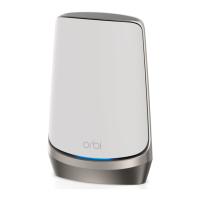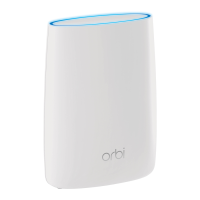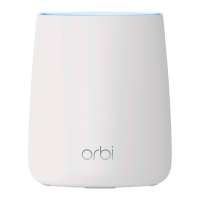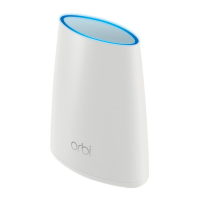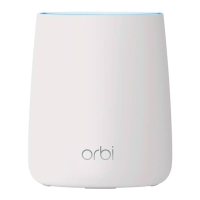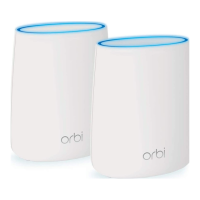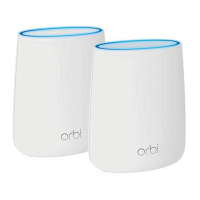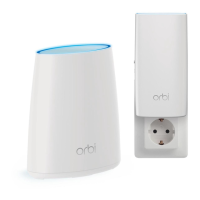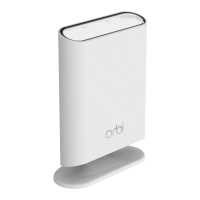Table 8. Technical specifications for Orbi router (Continued)
DescriptionFeature
IEEE 802.11a/n/ac/ax
5GHz—1024-QAM support
Data encoding standards radio 2
IEEE 802.11a/n/ac/ax
5GHz—1024-QAM support
Data encoding standards radio 3
Limited by the amount of WiFi network traffic generated by each node
(typically 50–70 nodes)
2.4 GHz: 127
5 GHz (fronthaul): 127
Maximum number of computers
per wireless network
2.412–2.472 GHz (Europe ETSI, Japan, and China)
2.412–2.462 GHz (US)
2.4 GHz operating frequency range
5.18–5.24 GHz, 5.745–5.825 GHz, and 5.845–5.885 GHz (US)
5.18–5.24 GHz and 5.745–5.825 GHz (China)
5.18–5.24 GHz and 5.5–5.7 GHz (Europe and Japan)
5 GHz operating frequency range
WPA2-PSK [AES]
WPA-PSK [TKIP] + WPA2-PSK [AES]
WPA3-Personal [SAE]
802.11 security
Technical specifications for Orbi satellite model RBS760
The following table shows the technical specifications for Orbi satellite model RBS760.
Table 9. Technical specifications for Orbi satellite
DescriptionFeature
TCP/IP, DHCP, Dynamic DNS, and UPnPData and routing protocols
North America: 120V, 60 Hz, input
UK, Australia: 240V, 50 Hz, input
Europe: 230V, 50 Hz, input
All regions (output): 12V, 3.5A DC output
Power adapter
8.3 x 6.6 x 2.5 in. (210.82 x 167.64 x 63.5 mm)Dimensions
1.6 lb (725.75 g)Weight
0° to 40°C (32º to 104ºF)Operating temperature
90% maximum relative humidity, noncondensingOperating humidity
FCC Part 15, Subpart B, Class B
IECS-003, Class B
EN 55032, EN 55035, Class B
AS/NZS CISPR 32, Class B
Electromagnetic emissions
User Manual128Supplemental Information
Orbi Tri-band Mesh WiFi 6 System
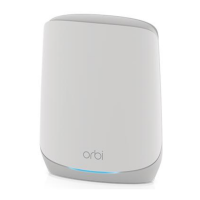
